82 results
Psychology videos $5-10
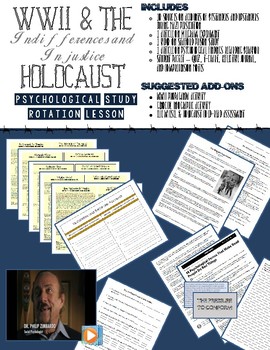
Psychology Study - Indifference, Injustice, and the Holocaust
Psychological Studies Activity – Students delve into reasons why the Holocaust (or any genocide) occurred through a study into psychological studies and theories. This product includes an article on The Milgram Experiments, a video on the Stanford Prison Study, real accounts of Upstanders and Bystanders during Nazi Persecution, and a personal reflective article on other psychological findings that drive positive and negative behavior. Activities for these stations include group discussions, a qu
Grades:
8th - 12th
Types:
Also included in: Four Perfect Pebbles: WWII & Holocaust Complete Bundle + BONUSES GALORE!

AP Psychology Exam Video Review Guide (All Units)
This 145-question packet covers all units on the AP Psych exam. There is an amazing 93-minute review video on YouTube that my students and I discovered a couple of years ago and I have since implemented it as a Spring Break homework assignment for my AP Psych students. I generally give it out a week before Spring Break in case students want to complete it prior to break. He reads from great notes, but they were not made accessible. I decided to create a video guide for my students to use whi
Subjects:
Grades:
9th - 12th, Higher Education
Types:
Also included in: AP Psychology Exam Review Bundle
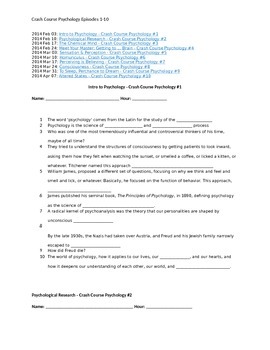
Psychology Crash Course YouTube Episodes 1-10 Video Questions
Video Guides to the YouTube Crash Course Psychology Episodes 1-10
Questions go in order with video. Great for class, extra credit, homebound, test review, ISS, etc...
Episode List
Intro to Psychology - Crash Course Psychology #1
Psychological Research - Crash Course Psychology #2
The Chemical Mind - Crash Course Psychology #3
Meet Your Master: Getting to ... Brain - Crash Psychology #4
Sensation & Perception - Crash Course Psychology #5
Homunculus - Crash Course Psychology #6
Perceiving i
Subjects:
Grades:
7th - 12th
Types:
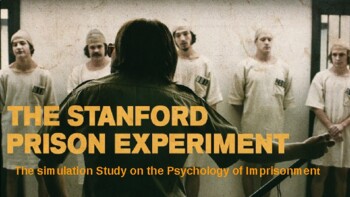
The Stanford Prison Experiment
*** Warning, this slideshow presentation contains sensitive written content, educational videos, and images. It is intended for EDUCATIONAL PURPOSES ONLY for age appropriate high school students**About the presentation...Stanford Prison Experiment, a social psychology study in which college students became prisoners or guards in a simulated prison environment. The experiment, funded by the U.S. Office of Naval Research, took place at Stanford University in August 1971. It was intended to measure
Grades:
9th - 12th, Higher Education, Adult Education

Forensic Files : Bundle Set #8 (10 Science Video Sheets / Distance Learning)
VIDEO AVAILABILITY DISCLAIMER: The videos needed to accompany the Forensic Files worksheets can be found on a variety of streaming services and websites. However, availability and prices for these videos can change month-to-month. Please make sure you have access to both the video and that your school’s servers can stream the content before making your purchase. Forensic Files can be found online easily at: YouTube (also check for “Medical Detectives”) and IMDB. Streaming services like Hulu, Net
Subjects:
Grades:
9th - 12th, Higher Education
Types:

Forensic Files Bundle #28 (10 video worksheet set / science / sub plans)
FORENSIC FILES VIDEO WORKSHEET BUNDLE (10 SHEETS)GRADES: 9-12SUBJECTS: SCIENCE, FORENSICS, LAW, HISTORYSUB/EMERGENCY PLANS: YES!DISTANCE LEARNING: YES!MORE FORENSIC FILES! – CLICK HERE!*Videos are necessary for completion of these worksheets.*Please watch the video in advance of your students to gauge appropriateness.Video Availability: Forensic Files (aka Medical Detectives) videos are available free/pay through a number of streaming and online sites including: YouTube, Amazon, IMDB and more. P
Subjects:
Grades:
9th - 12th
Types:

Gender Role Stereotypes Lesson
This lesson deals with gender role stereotypes. In my eighth grade class I teach the ratifying of the 19th Amendment and the liberation of women (ie Flappers) during the Roaring Twenties. I then use these events as a way to introduce the idea of Feminism. This particular lesson has two parts: First it asks students to give examples of what it means to do something "like a girl" and what it means to "be a man" or "act like a man." This is intended to generate interesting discussion about gend
Grades:
8th - 12th
Types:
3:35
Mimetic Theory: Two Types of Psychological Needs
Why do we want the things we want? One psychological explanation is that we often actually don't know what we want, but instead imitate others. This phenomenon is known as mimetic theory. According to Girard, the French philosopher who originated the theory, most of our desires are metaphysical- as opposed to bodily needs - and we mimic them from people around us. And because of that, people inevitably end up wanting the same things, which creates rivalry, conflict, and scapegoating.
Subjects:
Grades:
Not Grade Specific
5:40
ADHD from Childhood to Adulthood
In a group of 100 children, 2 to 4 will have minds that are atypical in a particular way. They have difficulties paying attention, talk too much, or constantly interrupt others. Later they are often diagnosed with Attention Deficit Hyperactivity Disorder, or short ADHD. To learn how it feels like growing up with ADHD, follow Lisa, a young girl who dreams about becoming a writer.
Subjects:
Grades:
Not Grade Specific
3:26
Stereotypes: The Truth Behind Cultural Clichés
Stereotypes are often understood solely as common beliefs about a particular category or group of people, including their personality, appearance, or abilities. However, they also serve as mental shortcuts, helping us generalize, reduce cognitive load, and make decisions quickly.
Subjects:
Grades:
Not Grade Specific
2:25
What The Libet Experiment Tells Us About Free Will
In 1980, Benjamin Libet wanted to find out whether our mind prepared for a movement before we were aware of it. He set up an experiment monitoring brain activity, and found that our brain becomes active 500 milliseconds before we become aware of the decision to make a movement. What does that say about free will?
Subjects:
Grades:
Not Grade Specific
40:06
(VIDEO LECTURE) A History and Current Practices of Therapy and Treatment
Introducing our comprehensive recording of a lesson on treatment and therapy in abnormal psychology! This engaging and expertly crafted resource provides educators with a valuable tool to enhance classroom instruction. This pairs with the lecture slides and can be used as a teacher resource before a lecture or as an accessibility resource for students.Key Features:In-depth Coverage: Explore various treatment modalities and therapeutic approaches in abnormal psychology, including psychotherapy, p
Subjects:
Grades:
11th - 12th, Higher Education, Staff
Also included in: BUNDLE: A History and Current Practices of Therapy and Treatment
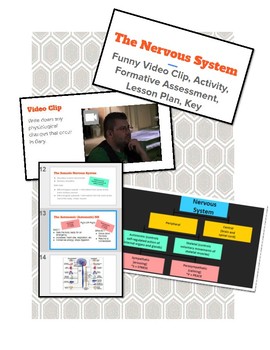
Nervous System & Endocrine System: Funny Vid Clip, Notes, Activity
Lecture can be so dry on the Nervous System and Endocrine System. Make this class stand out with a funny video clip from "Scare Tactics" to kick off class. Students will evaluate the video clip. Next, host a mini lecture with the Google Slides. Finally, students asses their understanding of the Nervous System with "Show me what you know" prompts on a formative assessment built within the slides. Key included. Video embedded. Just open the copied link!
Subjects:
Grades:
9th - 12th
Types:
36:21
(VIDEO LECTURE) Abnormal Psychology: Mood Disorders
This is a lecture video that is a focused look into Mood Disorders within Abnormal Psychology based on the slides and information from the Psychology 2E textbook from OpenStax.Key Features:In-depth Coverage: Explore the diagnostic criteria for Mood Disorders and related disorders as well as risk factors, prevalence, and cognitive theories for development.Visual Aids: Enhance learning with visually appealing slides, graphics, and charts that simplify complex theories and methodologies.Classroom R
Subjects:
Grades:
11th - 12th, Higher Education, Adult Education, Staff
Also included in: BUNDLE: Abnormal Psychology: Mood Disorders
18:47
(VIDEO LECTURE) Abnormal Psychology: Anxiety Disorders and Specific Phobias
This introduction to Abnormal Psychology focuses on Anxiety Disorders and Specific Phobias. It is based on the slides and information from the Psychology 2E textbook from OpenStax. It includes 8 slides of information with graphics with notes for the lecturer.Key Features:In-depth Coverage: Explore various anxiety and specific phobia disorders and expand on their history, prevalence, diagnosis, and impact.Real-life Examples: Illustrate concepts with real-world case studies and examples, making th
Subjects:
Grades:
11th - 12th, Higher Education, Adult Education, Staff
Also included in: BUNDLE: Abnormal Psychology: Anxiety Disorders and Specific Phobias
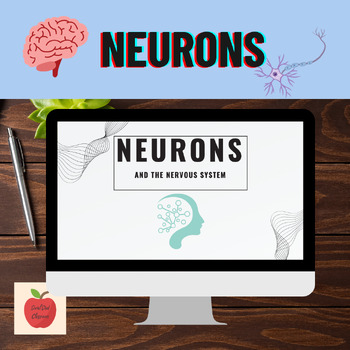
Neurons Lesson and Notes
Do you need a psychology lesson that covers and nervous system and neurons? You've come to the right place! This resource includes a presentation (in multiple formats) that introduces the following topics: Nervous system- the central nervous system CNS and the peripheral nervous system, PNSThe function of a neuronThe basic parts of a neuron and their functions NeurotransmittersIt also includes Guided Notes (in multiple formats) It includes 3 short videos that give the students perspective on wha
Subjects:
Grades:
9th - 12th
Types:
CCSS:
Also included in: Psychology Unit 2 Bundle: Biology and the Brain
6:12
Self-Determination Theory: 3 Basic Needs That Drive Our Behavior
Self-determination theory argues that people are motivated to learn, grow and change their lives, if their three basic psychological needs are satisfied: competence, connection, and autonomy. People who are unable to fulfill these three needs, may feel a motivation, or need extrinsic rewards to learn or make changes. They often experience little control over their own lives, no sense of self-determination, and often also poor mental health.
Grades:
9th - 12th, Higher Education
Types:
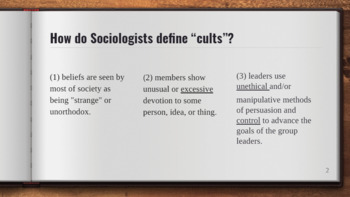
Introduction to Cults - Sociology
This Power Point contains 14 slides with embedded film clips and Ted Talk AND a corresponding 3-page worksheet for students to complete during and after the Power Point and videos.Students will learn what qualities a cult leader has, how cults recruit members, and then learn about Jim Jones and his cult via slides and video clips.The Power Point ends with an excellent and engaging Ted Talk where I woman describes her childhood experience of growing up in a cult and how she was able to leave it.T
Subjects:
Grades:
10th - 12th
4:28
The Fear of Missing Out
Fear of missing out is an anxiety of losing what we never even had, and could hence be described as an insane mental defect. However, it is common, real, and can make us feel deep regret for something that hasn’t actually happened. FOMO’s full destructive force can be observed in two friends who decided to invest their savings into bitcoin back in 2012.
Grades:
9th - 12th, Higher Education
Types:
3:03
Learned Helplessness
Sometimes we find ourselves in a mental state in which we feel unable to change a negative situation. If that happens for a prolonged period of time this can result in learned helplessness — we no longer even attempt to alter our circumstances. The concept was first introduced by Martin Seligman who noticed it in dogs that were repeatedly exposed to electric shocks and stopped trying to avoid them even when given the chance.
Grades:
9th - 12th, Higher Education
Types:
6:15
Siblings Dynamics: How Brothers and Sisters Affect Each other
Most people have a sibling — in fact, children in the U.S. today are more likely to grow up with a brother or sister than with a father. While a lot of social scientists research the impact of schools and parenting, little attention is given to a relationship that might be even more consequential. To understand just how important our relationship with our siblings are, let’s remind ourselves of the tragic story of the two most famous brothers in Western history.
Grades:
9th - 12th, Higher Education
Types:
7:56
Nature VS Nurture: The Effect of Genes and Environment on Life Outcomes
Is our personality shaped by the environment, or are we largely programmed genetically? No one can answer whether nature or nurture leads to certain traits in individuals. We do know, however, a bit about the influences of genes and the environment when it comes to groups of specific populations — especially when we talk about us humans. Our understanding of little asexual crayfish seems rather limited.
Grades:
9th - 12th, Higher Education
Types:
5:04
Cognitive Dissonance: Our Battle With Conflicting Beliefs
Cognitive dissonance is based on the idea that when two ideas are psychologically not consistent with each other, we change them and make them consistent. If the two conflicting ideas are deeply ingrained in our identity, this mental imbalance can become overwhelming and intoxicate our thoughts — and as a result we may believe even the most absurd conspiracy theories. Watch our video about the origins of this idea and its original research from 1954.
Grades:
9th - 12th, Higher Education
Types:
4:30
The History of Money: Barter, Fiat and Bitcoin
Money has evolved over time from bartering to the use of coins, paper, and digital transactions. Early forms of it included livestock, which then gave way to the use of precious metals like gold and silver. Paper currency was first introduced in China in the 7th century and then banks emerged. Today, some people start to use digital currencies like Bitcoin. But what is money and how did it come about?
Grades:
9th - 12th, Higher Education
Types:
Showing 1-24 of 82 results





